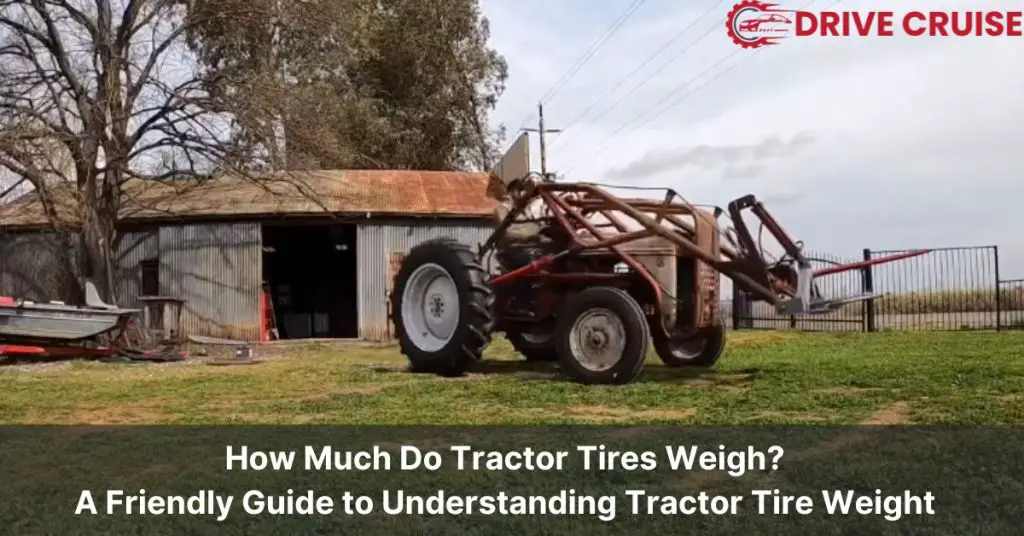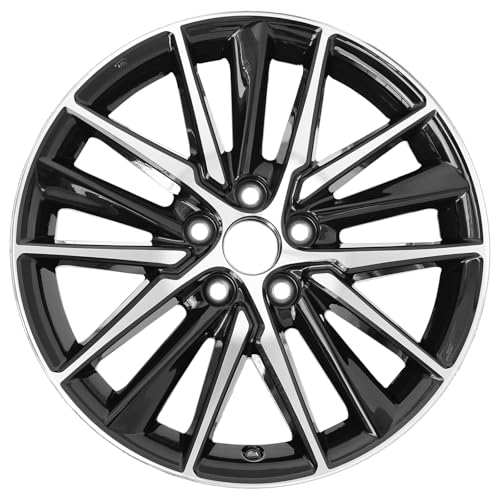Tractor tires come in a wide range of sizes and are used for various applications, which can significantly impact their weight. Whether you are transporting tractor tires, installing them, or ensuring tractor compatibility, it is essential to understand the weight considerations involved. In this article, we will explore how much tractor tires weigh and why it is important to know.
When it comes to tractor tires, weight is a crucial factor that affects their performance and lifespan. The weight of a tire determines its ability to increase traction and stability, which is essential for heavy-duty tasks such as hauling and plowing. Depending on the size and type of tractor tire, the weight can vary significantly, ranging from a few hundred pounds to over a thousand pounds.
Knowing how much tractor tires weigh is essential for transportation and installation purposes. Transporting heavy-duty tractor tires requires specialized equipment and knowledge to ensure safety and prevent damage to the tires and surrounding areas. Similarly, installing tractor tires requires proper equipment and techniques to ensure compatibility and prevent damage to the tractor. By understanding the weight considerations involved, you can ensure that you are using the right equipment and techniques for safe and efficient transportation and installation.
Understanding Tractor Tire Sizing
Metric and Imperial Sizing Systems
When it comes to tractor tire sizing, there are two main systems used: metric and imperial. The metric system uses a series of numbers separated by slashes, such as 380/80R28. The first number represents the section width of the tire in millimeters, while the second number is the aspect ratio, or the height of the sidewall as a percentage of the section width. The “R” indicates that the tire is radial, and the final number is the rim diameter in inches.
The imperial system, on the other hand, uses a series of numbers separated by a hyphen, such as 16.9-34. The first number represents the section width in inches, while the second number is the rim diameter in inches.
Impact of Size on Weight
The size of a tractor tire has a direct impact on its weight. Generally speaking, larger tires with wider sections and higher rim diameters will weigh more than smaller ones. This is because they require more material to manufacture and are designed to support heavier loads.
When it comes to how much a tractor tire weighs, it can vary depending on the size and type of tire. Small rear tractor tires typically weigh between 250 to 350 pounds, while large rear tires can weigh between 700 to 2,000 pounds. Front tires tend to be lighter, with small tires weighing around 100 to 200 pounds and large tires weighing between 300 to 700 pounds.
It’s important to keep in mind that the weight of a tractor tire is a crucial factor in determining its performance. Tires that are too heavy or too light can impact traction, stability, and fuel efficiency. It’s important to choose the right tire size and weight for your tractor to ensure optimal performance and safety.
Weight Variations Across Tractor Tire Categories
When it comes to tractor tires, weight can vary significantly depending on the category of the tire. Here are some estimated weight ranges for common tractor tire categories:
Weight Ranges by Category
- Implement tires (e.g., for plows, cultivators): 200-500 lbs (90-225 kg)
- Flotation tires (e.g., for harvesting, spraying): 800-1,500 lbs (360-680 kg)
- Radial tires (e.g., for high-performance tractors): 1,000-2,000 lbs (450-900 kg)
- Large tractor tires (e.g., for heavy machinery): 2,000+ lbs (900+ kg)
It’s important to keep in mind that these are estimates, and actual weight can vary depending on the specific size and brand of the tire. For example, while implement tires generally fall within the 200-500 lbs range, some may be lighter or heavier depending on their size and construction. Similarly, large tractor tires can weigh well over 2,000 lbs depending on their size and intended use.
Flotation tires, which are designed to distribute weight evenly over a large surface area, tend to be on the heavier side. These tires are commonly used for harvesting and spraying, where the weight of the machinery needs to be evenly distributed to avoid damaging crops or soil.
Radial tires, on the other hand, are designed for high-performance tractors and tend to be lighter than other categories. They are designed to provide better traction and stability at higher speeds, and are often used in applications where speed and efficiency are a priority.
Factors Affecting Tractor Tire Weight Beyond Size
When it comes to the weight of tractor tires, the size is not the only factor to consider. Other factors can affect the weight of the tire, such as tread pattern, ply rating, and material composition.
Tread Pattern and Ply Rating
The tread pattern of a tractor tire can significantly affect its weight. More aggressive tread patterns with deeper lugs tend to weigh more compared to smoother designs. This is because deeper lugs require more rubber material, which increases the overall weight of the tire.
Another factor to consider is the ply rating of the tire. The ply rating refers to the number of plies in the tire construction and indicates the tire’s strength and durability. Tires with higher ply ratings tend to be more robust and can handle heavier loads. However, they also tend to weigh more than tires with lower ply ratings.
Material Composition
Advancements in materials have led to the development of lighter yet strong synthetic fibers that can influence the weight of the tire. Compared to traditional materials, such as natural rubber, synthetic fibers can reduce the weight of the tire while maintaining its strength and durability.
However, the material composition of the tire can also affect its weight in other ways. For example, some tire manufacturers use heavier materials to add extra weight to the tire and improve its traction in certain conditions.
Weight Considerations for Tractor Owners and Operators
When it comes to tractor tires, it’s important to understand their weight and how it can affect your equipment’s performance, safety, and transportation. Here are some weight considerations for tractor owners and operators:
Transportation and Installation
Transporting and installing tractor tires can be a challenging task, especially when you’re dealing with heavy tires. Before purchasing or replacing your tractor tires, consider the following factors:
- Trailer capacity: Make sure that the trailer you’re using has enough capacity to safely transport the weight of your tractor tires. Overloading your trailer can be dangerous and lead to accidents.
- Lifting equipment limitations: Depending on the size and weight of your tractor tires, you may need special lifting equipment to install them on your tractor. Be sure to check the lifting capacity of your equipment before attempting to install your tires.
Tractor Compatibility and Performance
Exceeding the weight limit of your tractor’s rims or axles can have a negative impact on your equipment’s performance, handling, and safety. To avoid these issues, consider the following:
- Consult your tractor’s manual: Your tractor’s manual or manufacturer recommendations can provide you with valuable information about the maximum weight capacity of tires for your specific model. Be sure to follow these recommendations to ensure optimal performance and safety.
- How heavy is your tractor: Consider the weight of your tractor when selecting tires. A heavier tractor can handle heavier tires, but it’s important to stay within the manufacturer’s recommendations to avoid compromising performance and safety.
- How much does a big tire weigh: Larger tractor tires can weigh close to or more than 1,000 pounds. Be sure to consider the weight of your tires when selecting equipment for transportation and installation.
By considering these weight considerations, you can ensure that your tractor tires are safely and effectively installed and that your equipment performs optimally.
Finding Specific Tire Weight Information
When it comes to finding specific tire weight information for your tractor, there are a few resources you can turn to. Here are two options that can help you get the information you need:
Manufacturer Websites and Technical Specifications
Many tractor tire manufacturers provide detailed technical specifications on their websites, including weight information for each tire model and size. To find this information, you can visit the manufacturer’s website and look for a section on technical specifications or product details. From there, you can search for the specific tire model and size you’re interested in and find the weight information you need.
If you’re not sure which manufacturer makes the tire you’re looking for, you can try searching for the tire size and model number online. This should bring up a list of manufacturers that make that particular tire, and you can then visit each manufacturer’s website to find the weight information you need.
Tire Load Capacity Charts
Industry resources and agricultural equipment suppliers might offer load capacity charts that specify weight limits for various tire sizes and ply ratings. These charts can be helpful if you’re trying to determine the maximum weight that a particular tire can support.
To find load capacity charts, you can try searching online for resources related to tractor tire weight and load capacity. You can also check with your local agricultural equipment supplier to see if they have any resources or information that can help you.
Conclusion: Weight Matters for Informed Tractor Tire Choices
Choosing the right tractor tire is important for optimal performance and safety. One key factor to consider is the weight of the tire. The weight of the tire affects various aspects, including transportation, installation, and tractor compatibility.
When transporting tractor tires, their weight can significantly impact the cost and logistics of transportation. Heavier tires require more resources and planning to move safely, while lighter tires may be easier to transport.
During installation, the weight of the tire can also affect the process. Heavier tires may require more equipment and manpower to install, while lighter tires may be easier to handle.
Tractor compatibility is another important consideration when it comes to tire weight. Different tractors have different weight capacities, and choosing a tire that is too heavy for your tractor can lead to performance issues or even safety hazards.
To ensure a safe and appropriate fit for your tractor, it’s important to research specific weight information for the tires you’re considering. This will help you make an informed decision and choose the right tire for your needs.
In summary, weight matters when it comes to choosing the right tractor tire. Consider the weight of the tire for transportation, installation, and tractor compatibility. Research specific weight information for the tires you’re considering to ensure a safe and appropriate fit for your tractor.
Related Posts:
- C1241 Code Toyota: What It Means and How to Fix It
- Drive Light Blinking on Honda Pilot: Causes and Solutions
- Firestone vs Michelin Tires: Which One is the Best for Your Car?
- How Much Do Tractor Tires Weigh? A Friendly Guide to Understanding Tractor Tire Weight
- Toyota ICS Malfunction: Causes and Solutions
- Westlake Tires Review: Affordable and Reliable Tires for Your Vehicle














